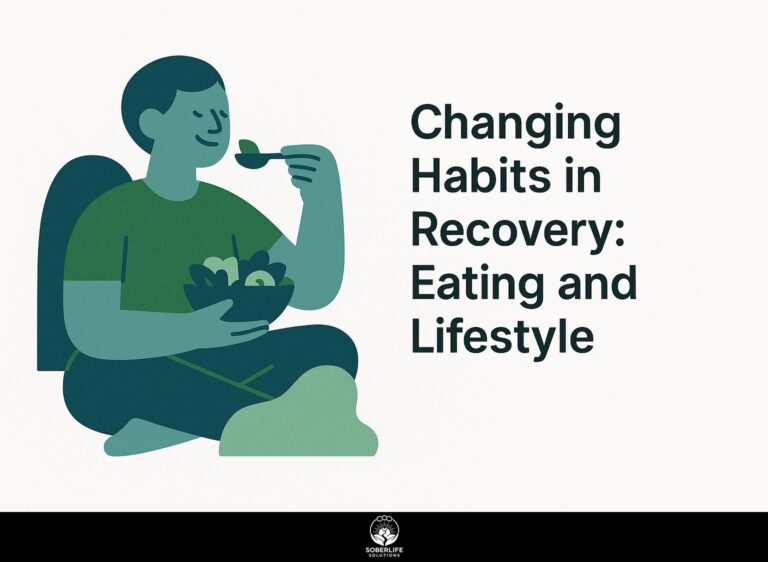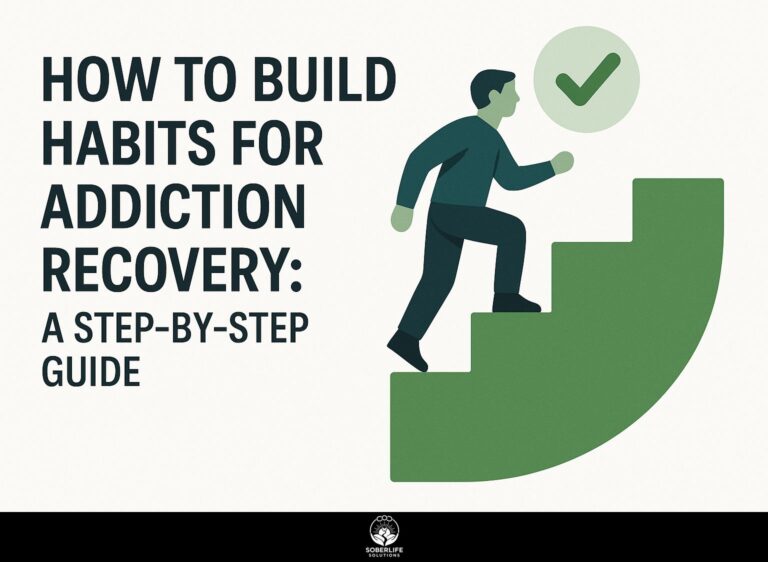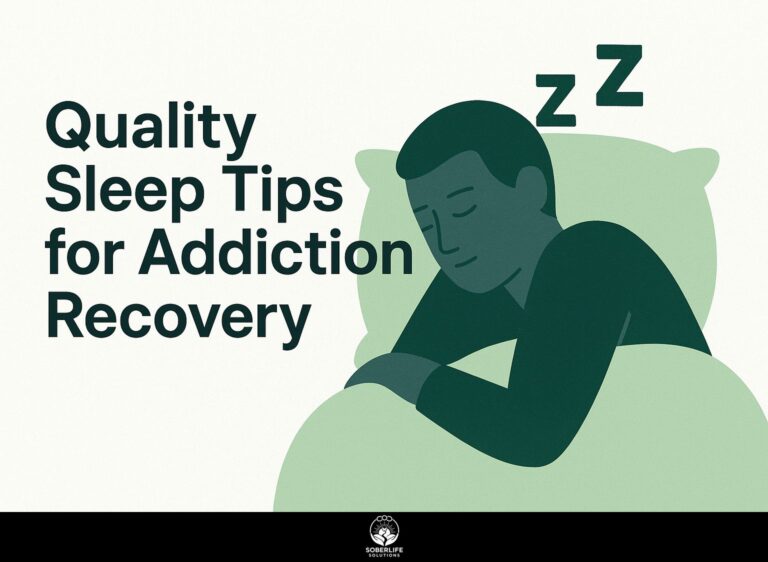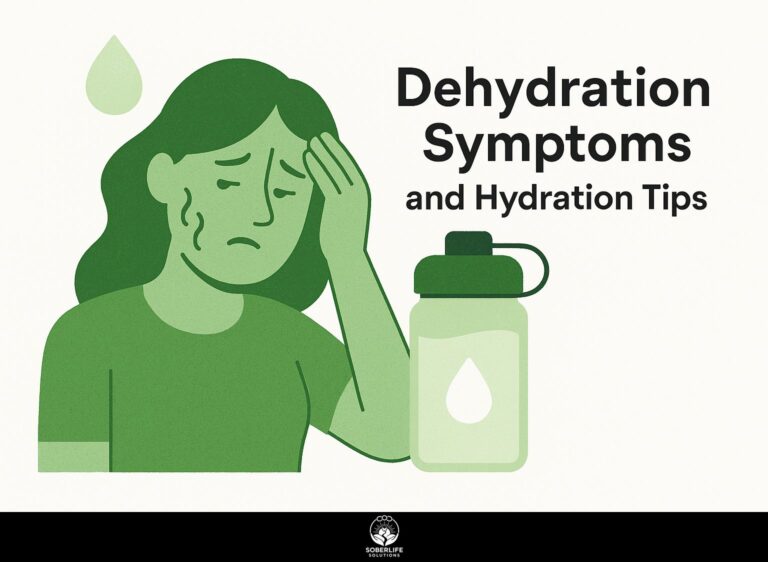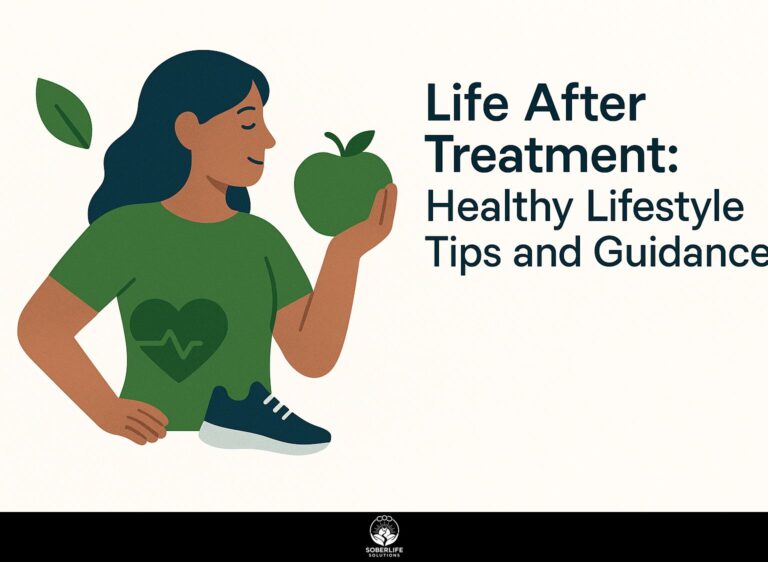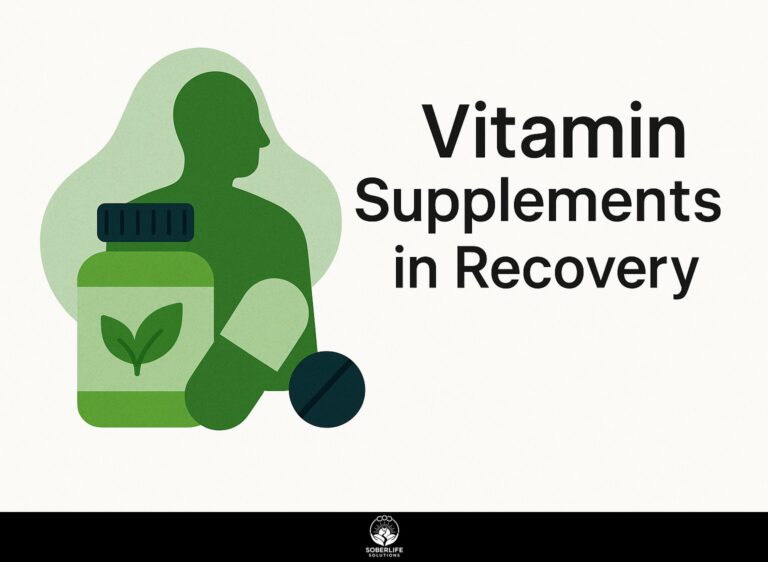Building a Sober Lifestyle: Key Strategies
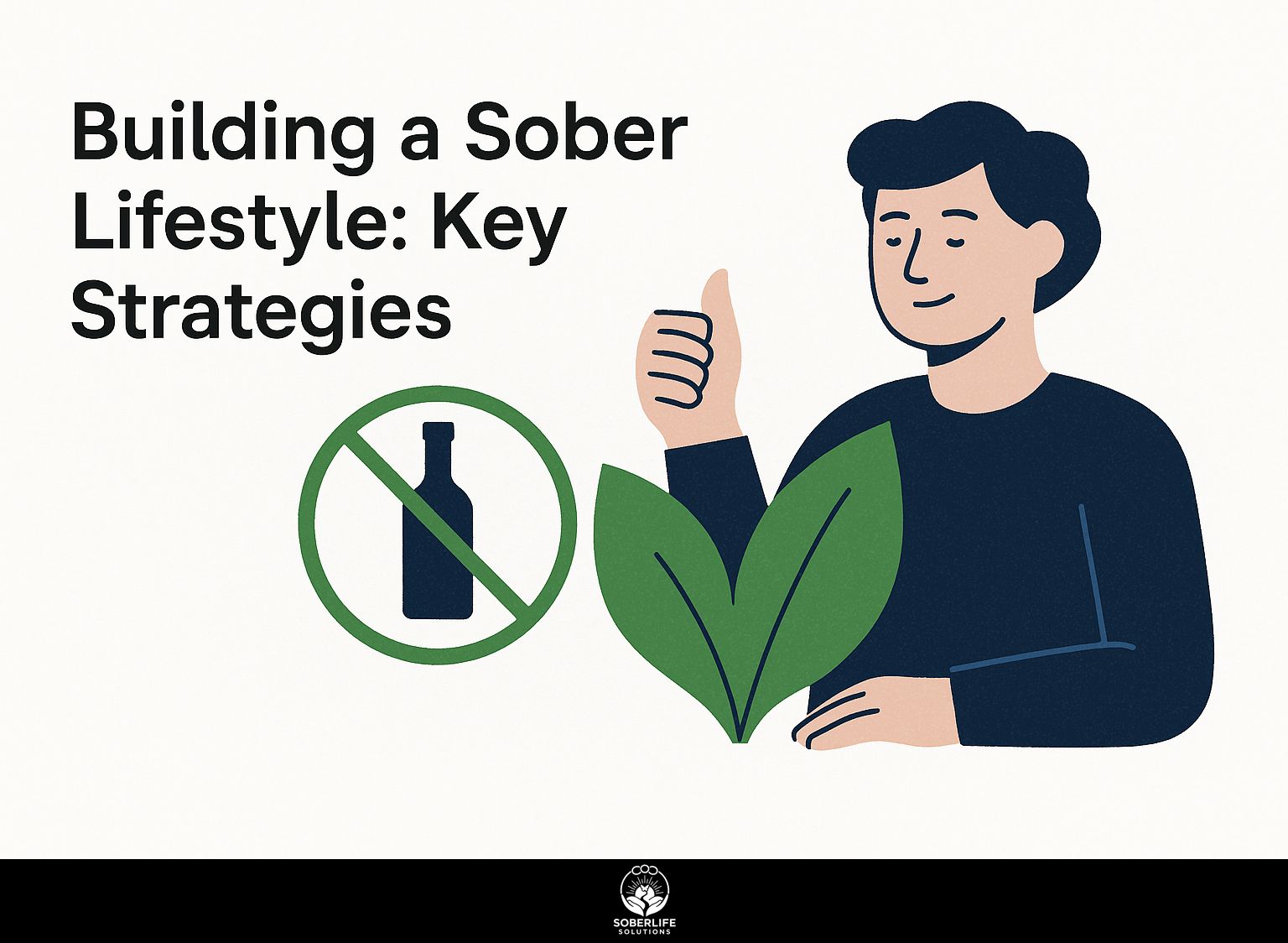
Adopting a sober lifestyle can greatly improve your recovery from substance abuse. In busy Provo, Utah, groups like Alcoholics Anonymous provide essential help to people who want to make changes. This article discusses important methods for establishing a lasting sober life, emphasizing setting goals, forming reliable support networks, and learning healthy ways to cope. Join us as we reveal practical steps to maintain long-term sobriety and a satisfying life.
Key Takeaways:
Understanding Sobriety
Sobriety means living without using addictive substances, which is key to having stable emotions and good mental health.
Achieving sobriety involves both psychological and physical aspects.
Psychologically, it requires developing coping mechanisms and a support network, such as attending group therapy or counseling sessions. Physically, it may necessitate detoxification and ongoing medical support.
According to the National Institute on Drug Abuse, individuals engaged in outpatient therapy have a recovery success rate of 40-60%. Those who participate in support groups, like Alcoholics Anonymous, report higher chances of maintaining sobriety long-term.
It’s important to pay attention to both parts for a thorough recovery plan. For those looking to solidify their journey, understanding the skills needed for sobriety can be beneficial.
Benefits of a Sober Lifestyle
Choosing a sober way of living can improve general health, leading to clearer thinking, stronger connections with others, and more chances for self-development.
For example, many people say their energy levels increase by 30% after being sober for six months. This increase in energy allows for more physical activity, which improves mental health. As mentioned in our comprehensive guide on how sobriety enhances mental health, these changes can be profoundly beneficial.
Think about adding mindfulness practices like meditation and yoga to your daily schedule. Research by the American Psychological Association shows these activities help manage emotions and improve mood.
Joining social activities, such as hobby groups or volunteer work, helps you meet new people and strengthen current friendships, offering important support as you focus on staying sober.
Setting Clear Goals
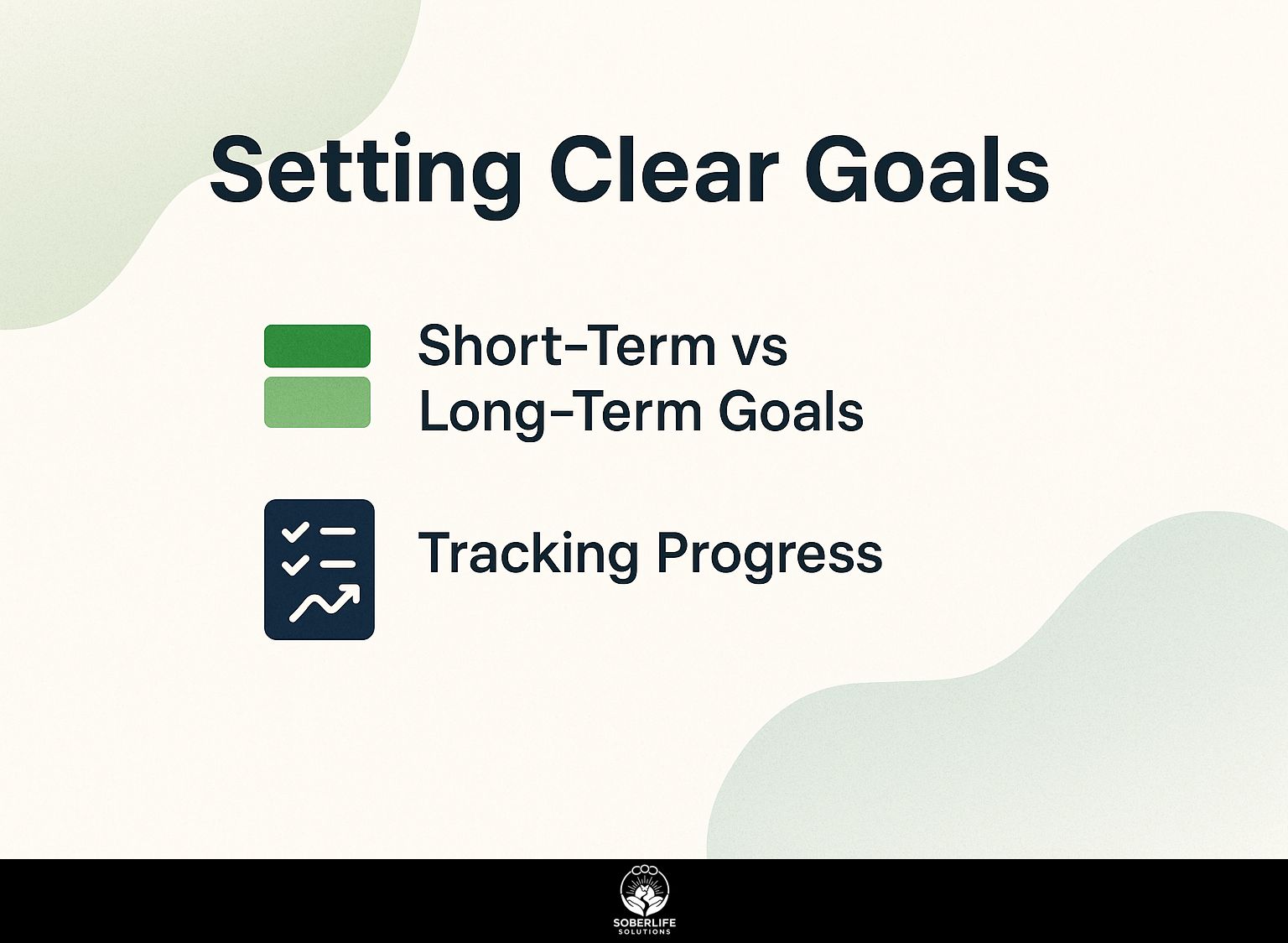
Setting clear and realistic goals is key to staying sober and helping personal growth during recovery.
Short-Term vs Long-Term Goals
Short-term goals focus on immediate achievements, such as attending weekly support group meetings, while long-term goals might include completing aftercare programs.
Set your goals using the SMART method. To explore detailed strategies and examples, there’s an insightful guide on SMART goals provided by Atlassian that can enhance your understanding.
For short-term objectives, specify your attendance at at least three meetings per month (Specific and Measurable), ensuring they fit within your schedule (Achievable).
For long-term goals, plan to complete an aftercare program within six months (Relevant and Time-bound), dividing it into monthly steps to monitor progress.
Use tools like Trello or Asana to manage these tasks. They help you see your progress clearly and remind you to stay on track with your recovery process.
Tracking Progress
Tracking progress in sobriety can be achieved through various tools, such as sobriety apps like Sober Grid or I Am Sober, which help monitor milestones.
Plus these apps, consider keeping a daily journal to reflect on your feelings and challenges. This activity helps you see clearly and shows how you have developed over time.
Writing in a journal with a partner can increase your dedication; update each other weekly to keep motivated.
For those who prefer digital solutions, Habitica gamifies habit tracking, turning sobriety milestones into achievements. Using these methods makes your progress clear and satisfying.
Building a Support Network
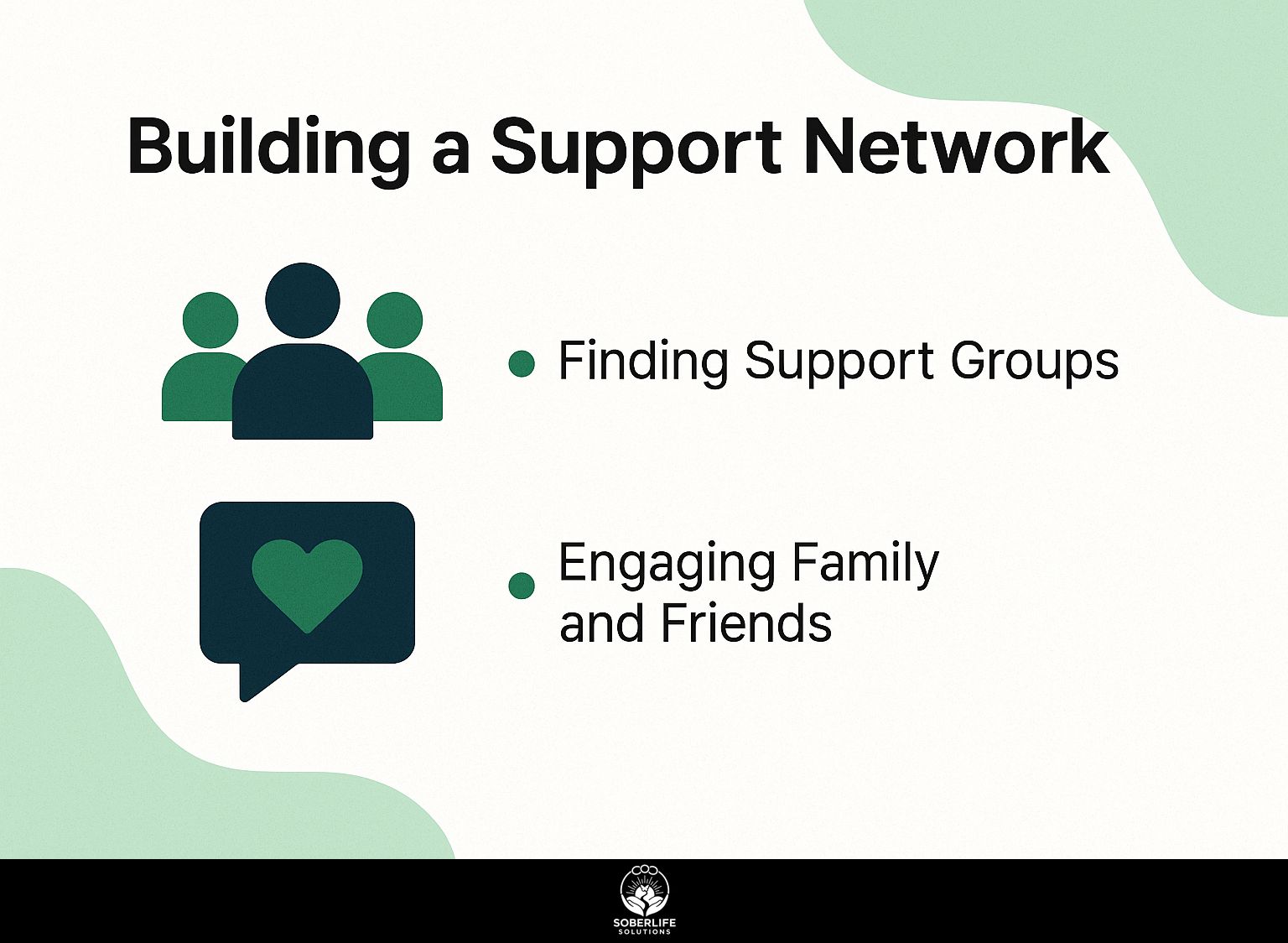
Having a reliable support network is important for anyone trying to recover because it provides emotional support and helps keep them accountable during difficult periods. Understanding various approaches to comprehensive support can significantly enhance the recovery process. Learn more about the benefits of different recovery support approaches and how they can make a positive impact.
Finding Support Groups
Support groups such as Alcoholics Anonymous or Narcotics Anonymous offer structured environments where individuals can share experiences and coping strategies.
In Provo, Utah, joining local support groups can improve your recovery process. Start by exploring resources like aa.org for Alcoholics Anonymous and na.org for Narcotics Anonymous, which provide meeting listings and helpful information.
Consider local organizations such as the Provo City Community Development Department, which often hosts support sessions and provides community mapping tools to find groups nearby.
Look on social media for community pages focused on recovery help, where people often share useful contacts and meeting times.
Engaging Family and Friends
Including family and friends in recovery can greatly improve emotional support and responsibility, leading to better relationships.
To effectively communicate your sobriety goals, use ‘I’ statements to express your feelings and needs, such as ‘I need your support to maintain my commitment to sobriety.’
Setting clear boundaries is important; clearly state what you are comfortable with and what you’re not during social events. Encourage family participation in positive activities like exercise or cooking nutritious meals together, which strengthens bonds and creates new traditions.
Regular family meetings can provide a space to talk about achievements and problems, creating a setting where people feel comfortable sharing and listening.
Developing Healthy Coping Mechanisms
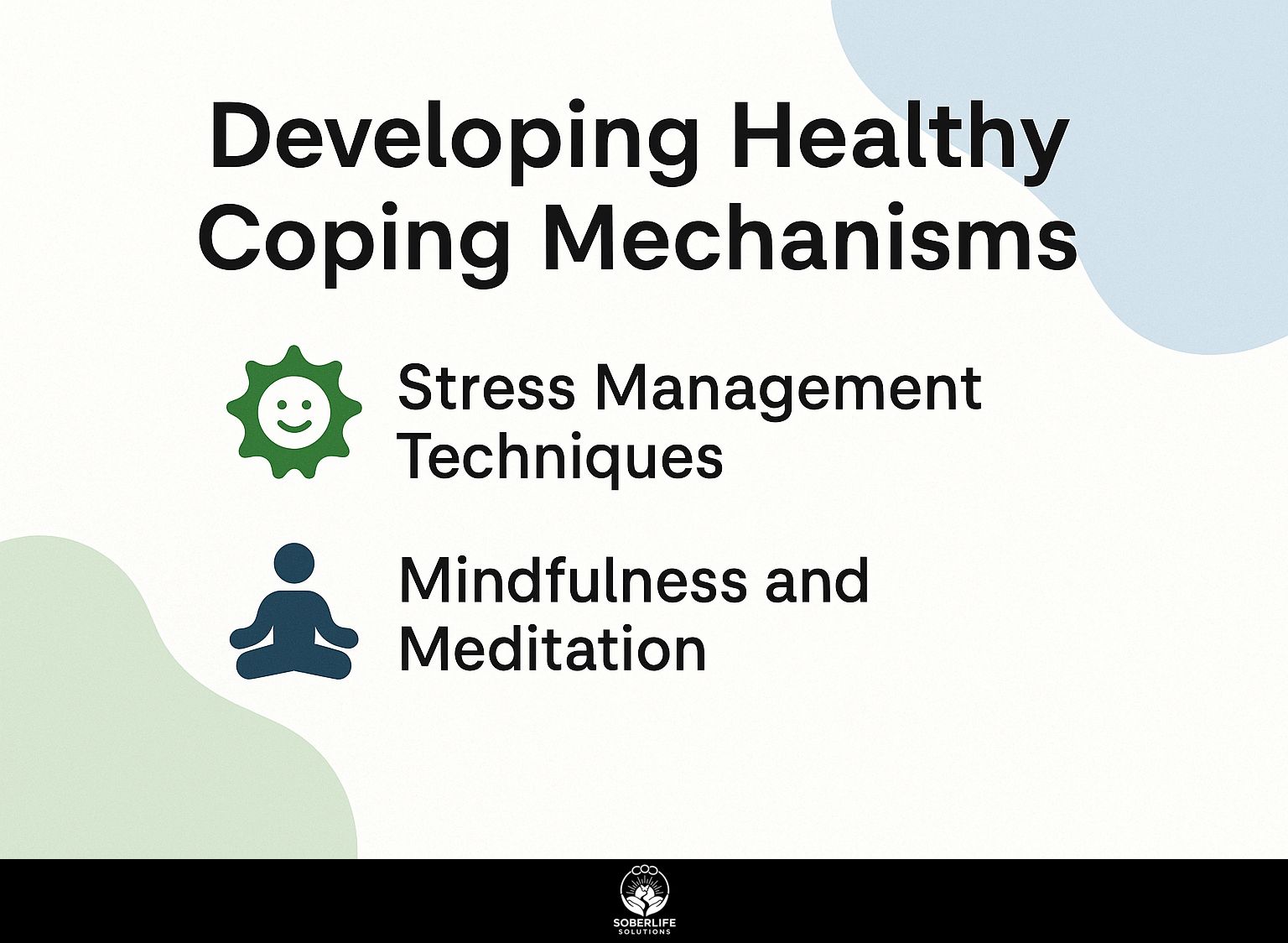
Building healthy ways to deal with stress is important for handling stress and avoiding setbacks in recovery. I recently came across this fascinating guide on effective coping strategies for recovery, which offers valuable insights.
Stress Management Techniques
Techniques like deep breathing exercises, yoga, and regular exercise can help manage stress effectively during recovery.
Adding these methods to your daily routine can greatly improve your well-being.
For instance, dedicate 5-10 minutes each morning to deep breathing: inhale for a count of four, hold for four, then exhale for four.
You can practice yoga three times a week using apps like Down Dog or Yoga Studio, which provide guided sessions suited to your level.
Try to get at least 30 minutes of exercise on most days, like brisk walking, cycling, or swimming, to increase endorphins and lift your mood.
Mindfulness and Meditation
Mindfulness and meditation can help improve emotional balance and reduce anxiety, supporting recovery.
To get started with mindfulness, consider dedicating just 10 minutes each day to practice. Try guided sessions with free resources such as [Headspace](https://www.headspace.com), where you can start with a 5-day trial, or [Insight Timer](https://insighttimer.com), which has a variety of free meditation choices.
For your beginner’s routine, try this:
- Sit comfortably.
- Focus on your breath.
- Observe your thoughts without judgment.
Gradually increase your session time as you feel more comfortable. Including intentional actions, like going for a walk or eating more slowly, can make your routine better. Consistency is key, so aim for daily engagement.
Creating a Structured Routine
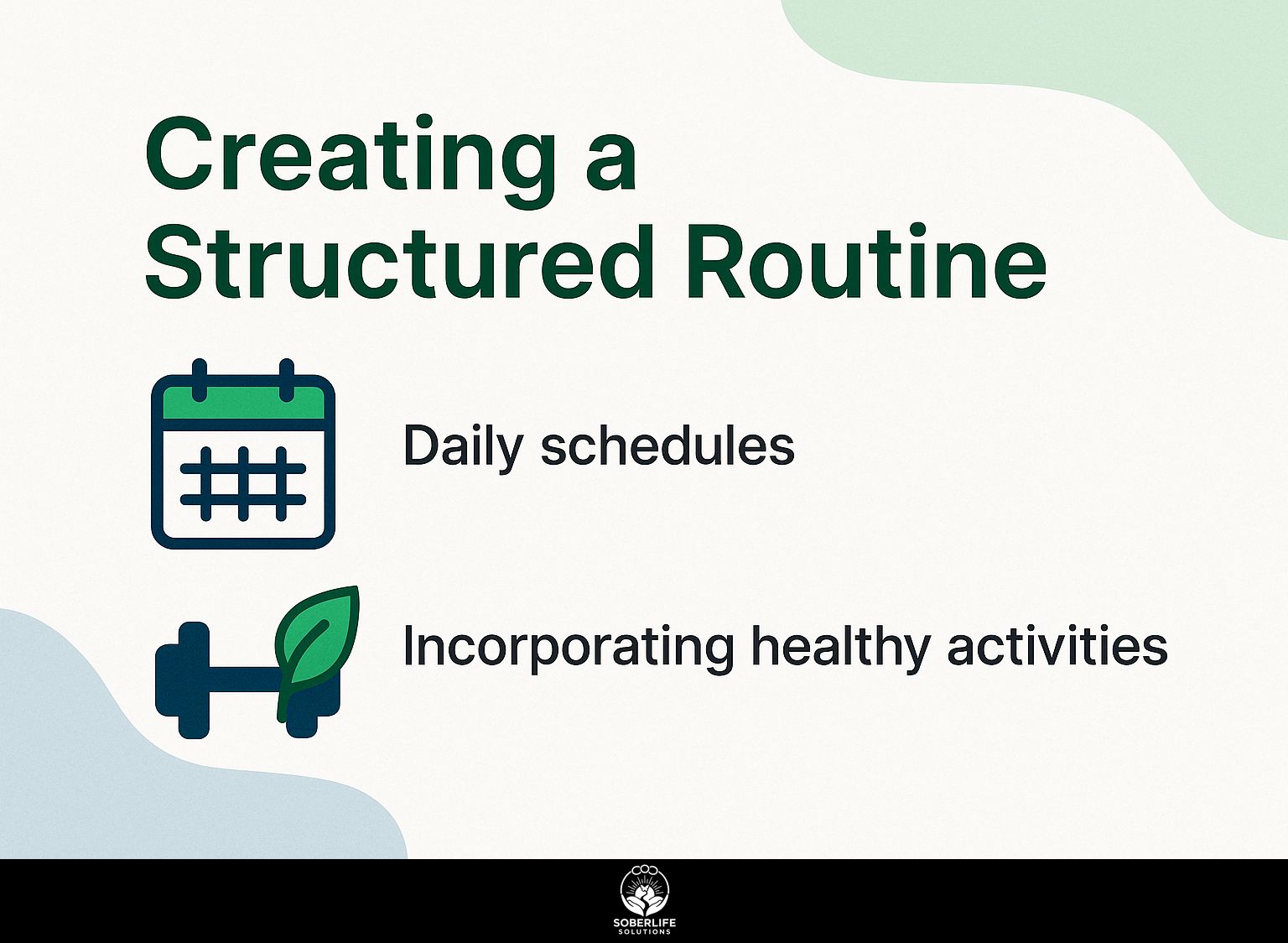
Creating a regular schedule supports good habits and gives a sense of steadiness during the recovery process. If you’re interested in exploring further, our detailed guide on how to develop healthy habits can offer additional insights into forming routines that enhance recovery.
Daily Schedules
Creating a daily schedule with moments for self-care, joining support groups, and enjoying hobbies can help a lot in recovery.
Having a set daily schedule is essential for achieving balance. Start your day with a morning meditation or light exercise, followed by a nutritious breakfast.
Schedule support group sessions at least three times a week, allowing for consistent connection and encouragement.
Set aside time for hobbies, such as painting or reading, which can improve your mood and give you a way to express yourself.
Include evening relaxation activities such as journaling or light stretching to wind down. This method supports mental and emotional well-being during recovery.
Incorporating Healthy Activities
Incorporating activities like volunteering, exercising, and engaging in hobbies can promote a fulfilling sober lifestyle.
In Provo, Utah, you can help out at different local groups to improve your mental well-being. Consider joining Utah Valley University’s Community Engagement, which offers opportunities to work with diverse groups and build social connections.
Alternatively, participate in group exercises at the Provo Recreation Center, where classes such as yoga or Zumba promote physical well-being and social interaction. Engaging in hobbies like painting or music can also be therapeutic; local art studios frequently offer workshops.
These activities help build connections in the community, improve self-confidence, and can greatly reduce stress.
Avoiding Triggers
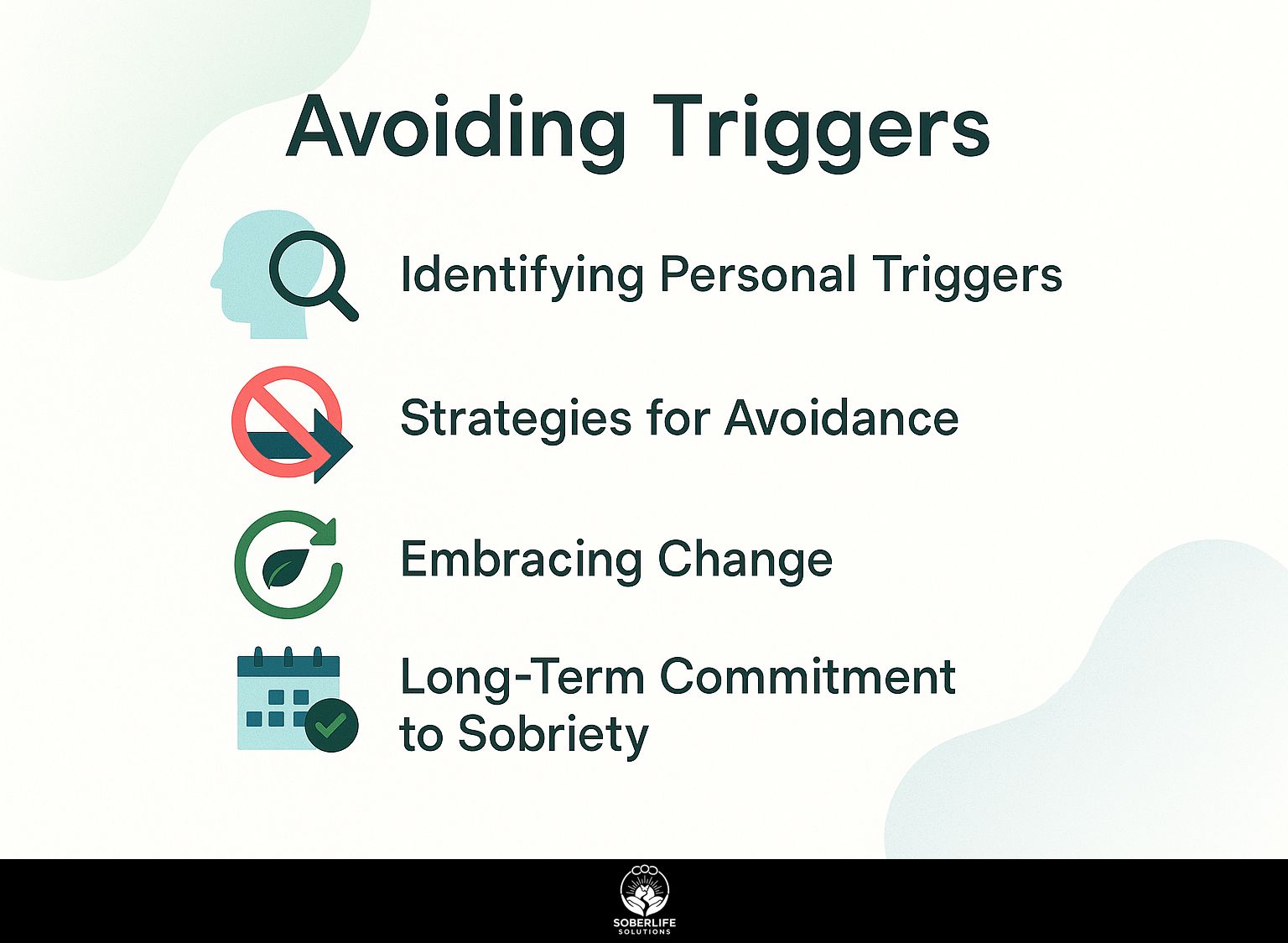
Recognizing and staying away from personal triggers is essential for staying sober and avoiding relapse.
Identifying Personal Triggers
Recognizing personal triggers, such as stressful environments or social situations, is the first step in managing them effectively.
To identify your triggers, start by journaling your daily experiences and emotions. Document moments when you feel overwhelmed or tempted to relapse.
Note the specific circumstances surrounding these feelings, such as your location, who you were with, or any particular stressors.
After a few weeks, review your entries for patterns, allowing you to pinpoint consistent triggers. When you recognize these issues, create ways to handle them, like practicing deep breathing or getting help from friends, to deal with these problems in advance.
Strategies for Avoidance
Effective strategies for avoiding triggers include developing a solid support system and creating an emergency plan for high-risk situations.
To improve your avoidance strategies, try using specific apps like `Mindfulness Coach’ for quick help and `Meetup’ to find local groups that match your interests.
Creating a clear plan for emergencies is important; list actions to follow when confronted with a trigger, like phoning a reliable friend or using a method to stay calm.
Practicing assertiveness during social events can help you escape situations that feel uncomfortable. By integrating these tools and strategies, you can strengthen your resilience against triggers.
Embracing Change
Accepting change helps people adjust their recovery plans as circumstances change, strengthening their dedication to sobriety.
To handle change well, follow these practical steps.
- Try new things, like joining a support group or starting a hobby, which can offer new ways of looking at things.
- Make achievable goals, such as attending a yoga class weekly, to develop discipline.
Mood journals help track changes in your feelings, and Habitica makes achieving goals enjoyable by turning it into a game. Regularly think about your experiences and change your strategies as needed, since being flexible is important for staying sober in the long run.
Long-Term Commitment to Sobriety
A long-term commitment to sobriety involves continuous learning, connection with support groups, and regular self-assessment.
To maintain this commitment, consider engaging in weekly therapy sessions, either individual or group-based. Cognitive Behavioral Therapy (CBT) can be particularly effective, helping to identify and change negative thought patterns.
While you’re at it, join local support groups like Alcoholics Anonymous or recovery groups to connect with others. Doing a self-review each month can help you see how you’re doing and set new targets.
Use journaling to think about what sets off your emotions and how you handle them. This will help you stay aware of your feelings and actions as time goes on.
Frequently Asked Questions
What does it mean to build a sober lifestyle?
Building a sober lifestyle means actively choosing to stop using drugs or alcohol and focusing on healthy habits and behaviors that support staying sober for the long term.
What are some key strategies for building a sober lifestyle?
Some key strategies for building a sober lifestyle include setting clear boundaries, surrounding yourself with a supportive sober community, and finding healthy coping mechanisms for stress and triggers.
How can I set boundaries in my sober lifestyle?
Setting boundaries in your sober lifestyle can involve saying no to situations that may trigger substance use, avoiding people who are still using, and being open and honest with loved ones about your boundaries.
What is the importance of a supportive sober community?
A helpful sober community can offer support, empathy, and responsibility to help you maintain your sobriety. It can help people feel they belong and are connected with others who have similar experiences.
What are some healthy coping mechanisms for stress and triggers in a sober lifestyle?
Some healthy coping mechanisms for stress and triggers include exercise, mindfulness practices, creative outlets, and connecting with others who understand and support your sobriety.
How can I maintain my sober lifestyle in the long-term?
Maintaining a sober lifestyle in the long-term requires consistency and commitment. It also involves continuously reassessing and adjusting your strategies to fit your changing needs and circumstances. Getting support and keeping in touch with your sober community can help you stay sober.

